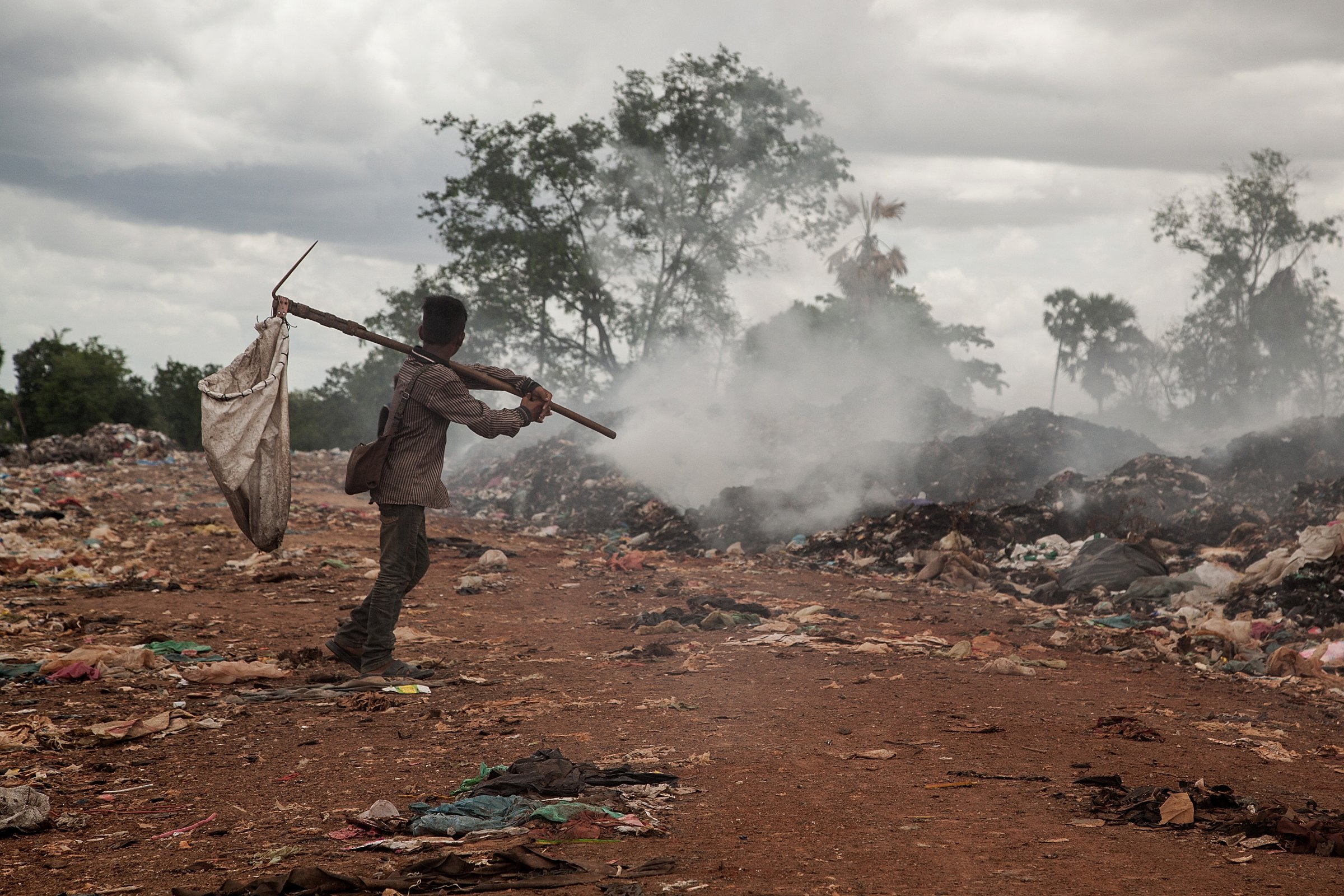
More than 40% of trash produced around the world today is burned without regulation or oversight in a process that damages public health and contributes to climate change, according to a new study from the National Center for Atmospheric Research.
“Air pollution across much of the globe is significantly underestimated because no one is tracking open-fire burning of trash,” said NCAR researcher and lead author of the study Christine Wiedinmyer in a statement. “The uncontrolled burning of trash is a major source of pollutants, and it’s one that should receive more attention.”
Mercury and polycyclic aromatic hydrocarbons, a type of particle created during burnings, are among the potent materials released from unregulated burnings that have been linked to health problems like neurological disorders, cancer and heart problems.
While garbage burning happens across the globe, it’s particularly rampant in developing countries with limited access to controlled methods of trash disposal. More than 20 percent of large-particle pollutants in China come from trash burning. In fact, it was the visible presence of pollutants in the air during a trip to Ghana that in part inspired Wiedinmyer to conduct this study, she has said.
And, even if the problem is clear, the lack of current data solutions difficult to design.
“This study was a first step to put some bounds on the magnitude of this issue,” Wiedinmyer said. “The next step is to look at what happens when these pollutants are emitted into the atmosphere—where are they being transported and which populations are being most affected.”
More Must-Reads from TIME
- Donald Trump Is TIME's 2024 Person of the Year
- Why We Chose Trump as Person of the Year
- Is Intermittent Fasting Good or Bad for You?
- The 100 Must-Read Books of 2024
- The 20 Best Christmas TV Episodes
- Column: If Optimism Feels Ridiculous Now, Try Hope
- The Future of Climate Action Is Trade Policy
- Merle Bombardieri Is Helping People Make the Baby Decision
Write to Justin Worland at justin.worland@time.com